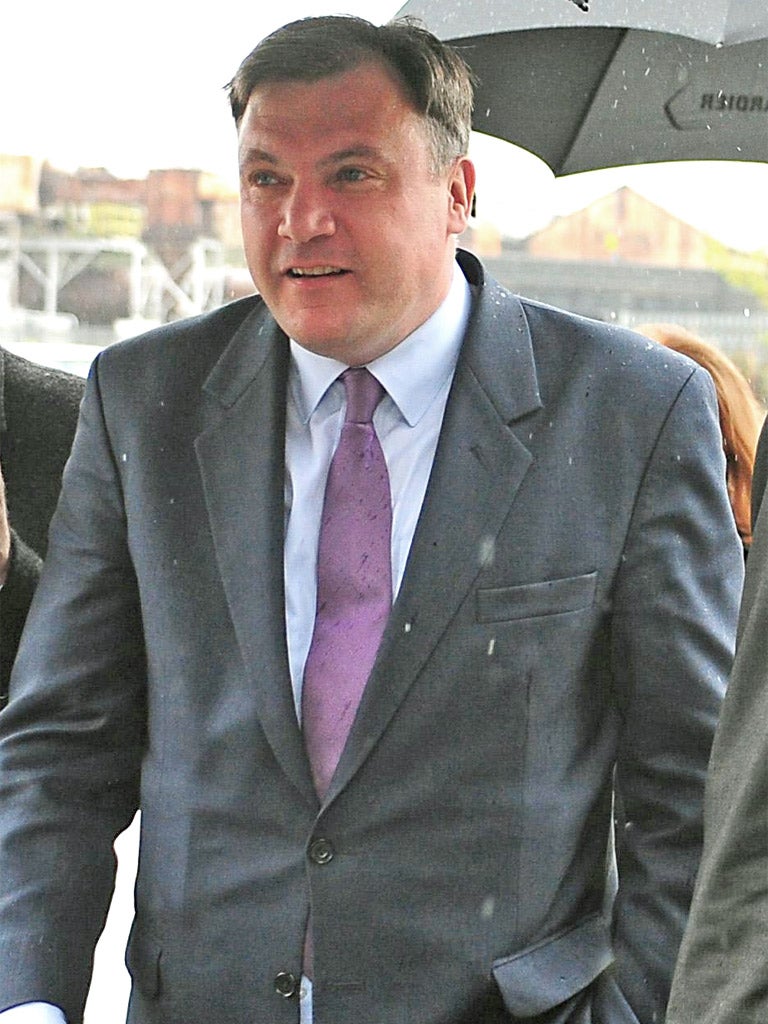Andrew Grice: Anti-politics mood is giving Labour a hard time in opposition
Inside Westminster


Things ought to be only getting better for Labour. A Socialist president is elected on a "growth not austerity" ticket in France. Britain slides back into recession, vindicating Labour's warnings that the spending cuts are "too far, too fast". Labour wins more than 800 seats in the council elections, crucially recovering ground in the south of England. The Coalition's second anniversary is marked not by celebration but an omnishambles.
And yet all is not well in Labour land. Behind the scenes, a bruising battle is being fought as the party wrestles with the classic dilemma of opposition: how much to say about what it would do – on policy and, in today's climate, what it would cut.
The shadow Cabinet is divided. Old labels can be misleading. It's not a fight between descendants of Tony Blair and Gordon Brown. Nor is it Ed Miliband against followers of his defeated brother. Their leadership battle set natural allies against each other, but bridges have been largely rebuilt.
Ed Balls, the shadow Chancellor, sees no need to rush into decisions three years away from a general election. When shadow ministers Jim Murphy (defence) and Maria Eagle (transport) proposed specific cuts earlier this year, Mr Balls shot them down in flames, accusing them of playing into Tory hands. Conversely, Ed Miliband seemed happy for them to stake out the ground on cuts, to help Labour regain economic credibility.
There's an intense debate over how much emphasis to put on Mr Balls' five-point plan to simulate growth (which would require higher borrowing in the short term) as opposed to Mr Miliband's admission that an incoming Labour Government would have to make further cuts. The two messages are not mutually exclusive, but the balance between them matters.
Even his Labour critics acknowledge that Mr Balls' hand has been strengthened by the double-dip recession; he went out on a limb by predicting it during the leadership election. But the critics fear the consequences: allowing David Cameron and George Osborne to say Labour's short-term plan proves that the party is still hooked on spending and thinks the answer to a debt crisis is to borrow more.
There is a similar debate over how much to say about specific policies, even if funded by cuts elsewhere. Some Labour frontbenchers are alarmed by an edict that policy statements should create "a buzz" rather than be fleshed out in any detail. They see it as the virtual abandonment of the wholesale policy review Mr Miliband promised.
A hiatus has been caused after Liam Byrne, the Blairite heading the policy review, decided to run for Mayor of Birmingham, only for local voters to reject having a mayor in last week's referendum. It seems that Mr Byrne's enemies are trying to prise him out of the crucial policy role, but he might yet retain it.
The leadership denies the review has been abandoned, insisting that "creating a buzz" about a policy idea does not mean it has no substance. Four or five areas of policy will become clearer next month, senior Labour sources insist. They accept that Labour has "definition issues" – political speak for voters not having a clue what the party stands for. But they are adamant that a 300-page, A-Z compendium of Labour policy is not what the party needs.
Labour's challenges go beyond policy, cuts and the obviously unfinished business of ensuring Mr Miliband grows into a PM-in-waiting.
Opposition has its advantages, especially in dire economic times. But Labour is not immune from today's anti-politics mood, as its surprise defeat in the Bradford West by-election showed. Campaigning ahead of last week's elections (turnout 32 per cent), Mr Miliband encountered people who said not that they wouldn't vote this time, but simply that "I don't vote".
In a speech to the modernisers' network Progress today, the Labour leader will address why so many people have turned against party politics, saying many think the mainstream parties are "all the same" and don't keep their promises. He believes Labour must address head-on issues that are uncomfortable for the party, such as the public's fears about immigration.
Mr Miliband thinks the old way of fighting elections, with parties targeting a tiny proportion of swing voters in key marginal seats, is no longer an option. A way must be found to re-engage the millions who don't vote or even register to vote. He wants to end a system in which politics is conducted by a few and economic policy is skewed towards the vested interests of a few others, including the banks and media owners such as Rupert Murdoch. He is determined to make the 2015 poll a "real change" election. That will mean big changes for both Labour and the country.
Public hostility means that millions will turn their backs on politics for a while. However, many will tune back in, if only briefly, before the general election. For many, the only alternative they will see will be Labour. Mr Miliband and his party must be ready for that critical moment: people may take only a quick look. Labour is nowhere near ready yet. To adapt its own slogan, the party needs to go further and faster.
Join our commenting forum
Join thought-provoking conversations, follow other Independent readers and see their replies
Comments
Bookmark popover
Removed from bookmarks